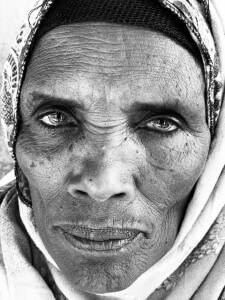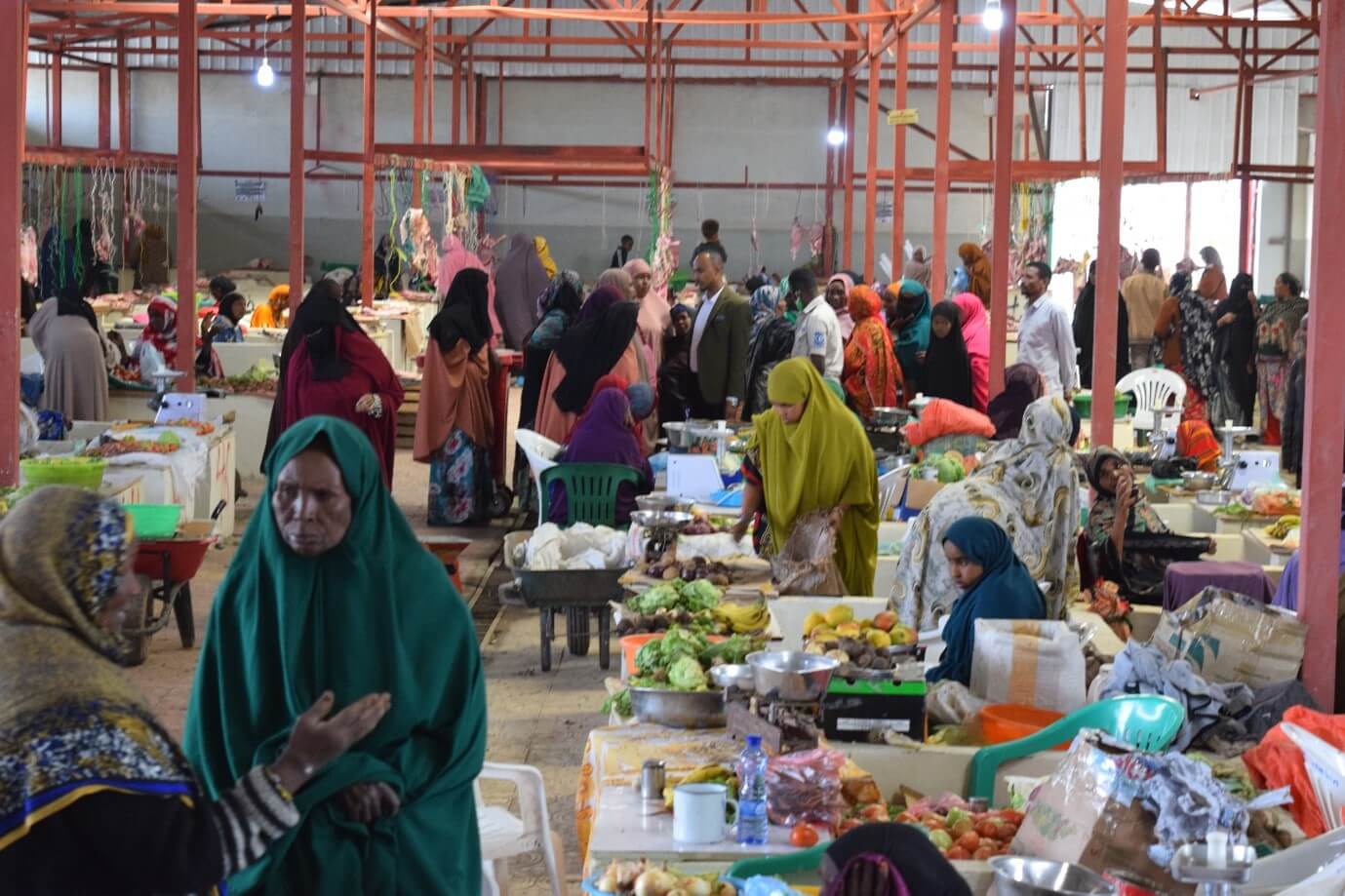TradeMark Africa with project implementing partner Horn of Africa Voluntary Youth Committee (HAVOYOCO), project donors European Union, IGAD and Foreign and Commonwealth Development Office launched a modern market project on the Ethiopia and Somaliland border under the Safe Trade Zones. This market for informal women traders in Ethiopia’s border is being constructed with key health provisions and features to ensure enhanced safe trading and hygiene in light of the prevailing COVID-19 pandemic.
Safe Trade Zones are under the Safe Trade Emergency Facility, a US$31 million intervention by TradeMark Africa in the East, Horn and Southern Africa region in the wake of the debilitating effects of COVID-19 on trade. Similar markets are being implemented in Busia Kenya, Nimule in South Sudan and Rusizi in Rwanda.
The market in Ethiopia consists of 90 stalls for trade designated to provide social distancing of 2.5 metres in accordance with safe trade protocols. It will feature sections for selling meat, milk, fruit, and vegetables. Other facilities include prayer rooms, breastfeeding centres, cold chain rooms and handwashing points. Water harvesting tanks and milk handling containers are currently under procurement.
Qamar Cige, a meat trader, is one of the women who stand to benefit from the upgraded market.
BAD GOAT
In the dusty border-town of Tog Wajaale, Somaliland Qamar Cige sits outside an open market building. It’s an afternoon characterised by hot and dense air. Not far from here there is a gargle of women buying camel milk from a rusty old pickup. In the market women sit on the floor selling meat cut in chunks or strips. This is the meat market of Tog Wajaale where a handful of women spread their wares. The heavy smell of dry blood and tissue hangs in the air.

Qamar – a widowed mother of three adult children – has been selling meat here since 1998. The market, she says, is the lifeline of many women in the area. “Children go to school because of that market, houses get built because of it and we all live because of coming here daily to sell meat,” She says, her eyes, the colour of weak tea, piercing and alert. The condition of the market has not been the best and the noises you hear in that building next door is the noise of the masons putting the final touches to the new market that they anticipate moving into next year. “InshAllah,” she mumbles.
Goat meat is a favourite of the people of Tog Wajaale and because of that demand, Qamar sells six goats a day. On a bad day she will sell three goats.
Every evening she makes a call to her agent, a lady across the border in Wajaale. She orders a number of goats that are marched to her in the morning. She then inspects the goats before she buys them. A good goat costs about 5,000 birr (Approx $100), while an OK goat will set you back by 2,000 Birr (Approx $40). Qamar gives a quick lesson on telling a good goat like rubbing her hands on the goat hide to feel the textures. Once a purchase is made, she will send the goats to slaughter.
Having a market is not just important for selling goats, it’s also a great place for socialising. It’s a meeting point, a place of minds to interact and share. “An organised market like the one being built here will make it easier for people to socialise and interact because it will be spacious and it will make it more attractive for people not only to come but also to linger on for long and when they linger on for long they will tend to buy more.” A hospital is great, a school even better. “But a market, a market is the cornerstone of humanity,” she says, “it’s where you attach yourself to the heart of your society.”















